Community marketing has proven to be one of the most powerful tools for brands looking to deepen connections with their audiences. By fostering genuine interactions, creating shared value, and building loyalty, community-driven strategies have become essential in social media campaigns. But looking ahead to 2026, community marketing is set to evolve dramatically, driven by technological, cultural, and consumer behavior shifts. Here’s how the future of community marketing on social media is shaping up.
Key Predictions for Community Marketing by 2026
Rise of Niche Communities
Brands are expected to lean even harder into niche communities to achieve hyper-targeted engagement. Broad audience groups will give way to more specialized online spaces where individuals share specific passions, interests, and hobbies. These smaller, highly engaged clusters allow brands to create tailored, meaningful content and connections, increasing the overall ROI of community marketing efforts. Expect platforms such as Reddit, Discord, and private Facebook Groups to play crucial roles in enabling these micro-communities.
AI-Powered Community Management
By 2026, artificial intelligence will become a key player in community marketing. AI-powered tools will not only help in automating repetitive tasks like moderating discussions and responding to common queries but will also deliver advanced analytics to understand community behaviors, sentiment, and trends. This enhanced analysis will allow brands to create data-driven strategies, ensuring they’re delivering maximum value to their communities.
Authentic User-Generated Content at the Center
Consumers crave authenticity, and by 2026, user-generated content (UGC) will likely dominate community marketing efforts. Brands will increasingly rely on UGC to foster trust and promote relatability, encouraging their communities to share their real-life experiences with products or services. Platforms such as Instagram and TikTok will continue to thrive as central hubs for authentic, community-led content.
Virtual and Augmented Reality Experiences
The integration of virtual and augmented reality (VR/AR) is poised to revolutionize the way communities engage with brands. By 2026, brands could host immersive virtual events, meetings, and group activities that bring community members together in entirely new ways. Think about a virtual yoga class hosted by Lululemon ambassadors or an augmented reality treasure hunt powered by LEGO – the possibilities are endless.
Stronger Brand Advocacy Through Loyalty Programs
Community-driven brand advocacy and loyalty programs will become more robust. By actively involving community members in shaping brand experiences, businesses can turn loyal customers into passionate advocates. We’ll see a rise in brands offering exclusive perks, rewards, and recognition to their most engaged advocates, fostering deeper loyalty while encouraging word-of-mouth promotions.
Successful Examples of Community Marketing
To better understand where community marketing is heading, it’s helpful to look at current success stories that have set the gold standard for building engaged communities.
- Sephora’s Beauty Insider Program
Sephora has mastered the art of community marketing through its Beauty Insider loyalty program. By offering exclusive content, events, and personalized recommendations, Sephora has cultivated a thriving community of beauty enthusiasts who not only stay loyal to the brand but also actively engage in promoting it.
- LEGO Ideas
LEGO’s platform for fans to submit and vote on new designs is a prime example of community-led innovation. This strategy not only connects passionate fans but also directly integrates the community’s ideas into the brand’s product development process, ensuring customer satisfaction and participation.
- Harley-Davidson’s Harley Owners Group (H.O.G.)
H.O.G. is more than just a community – it’s a lifestyle. By creating shared experiences through events, group rides, and exclusive memberships, Harley-Davidson has built unparalleled brand loyalty and advocacy among its riders.
- Red Bull’s Content Strategy
Red Bull has created a vibrant community by associating itself with extreme sports and music enthusiasts. Through dynamic content and events like Red Bull Cliff Diving or music livestreams, the brand has established a loyal following centered around a specific lifestyle.
- Lululemon’s Ambassador Program
Lululemon connects with local yoga and fitness instructors who act as brand ambassadors. This strategy not only generates credibility and trust within communities but also fosters authentic and direct relationships between ambassadors and their followers.
The Impact of Community Marketing on Social Media Platforms
Social media platforms are evolving to cater to the next generation of community marketing. We’re already seeing platforms like Facebook, LinkedIn, and WhatsApp adapt their group functionalities, while Discord and Reddit thrive as dedicated hubs for community engagement. Over the next few years, expect:*
- Enhanced Group Features: Platforms will offer robust tools for creating and moderating communities, with options for monetization.
- Integration with E-Commerce: Social commerce will intertwine with community marketing, allowing users to shop directly within community spaces.
- Better Analytics for Community Managers: Comprehensive tools to measure engagement, demographics, and ROI of community campaigns will become standard.
Preparing Your Brand for the Future of Community Marketing
Want to future-proof your community marketing efforts? Here are a few strategies to keep your brand ahead of the curve:
- Invest in AI Tools: Start leveraging AI for community moderation, sentiment analysis, and delivering personalized recommendations.
- Foster Collaborative Spaces: Create spaces where community members can contribute their ideas and share feedback directly with your brand.
- Experiment with Immersive Technologies: Begin exploring ways to incorporate VR or AR into your community campaigns to stay relevant as these technologies gain traction.
- Build Authentic Relationships: Focus on transparency and authenticity to foster connections with your community members. Encourage discussions and celebrate their voices.
Final Thoughts
The future of community marketing looks exciting, innovative, and deeply immersive. Social media will serve as the foundation for brands to cultivate tighter-knit communities, driven by technology like AI, VR, and AR, and enriched by authentic user participation.
Brands like Sephora, LEGO, and Harley-Davidson have provided us with timeless examples of how communities foster loyalty and advocacy, while the road ahead promises even greater innovation.
By integrating a forward-thinking strategy that embraces these emerging trends, your brand has the opportunity to drive long-term engagement and growth.
Looking to get started with building a loyal community around your brand? Start small, experiment with platforms, and, most importantly, listen to your community members. Success is brewed in collaboration and connection!
We Want To Talk To You About Your Marketing Goals.
Let’s Supercharge Your Online Growth!












